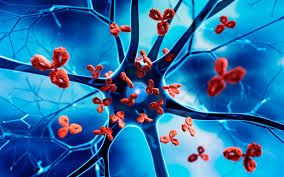A Comprehensive Guide to Detoxification in South Korea Embrace Wellness and Renewal
A Comprehensive Guide to Detoxification in South Korea: Embrace Wellness and Renewal
In recent years, South Korea has emerged as a leading destination for health-conscious individuals seeking detoxification and wellness solutions. The country is known for its blend of traditional practices and modern medical advancements, offering a unique environment for those looking to rejuvenate their bodies and minds. This article explores the detoxification process in South Korea, highlighting the multifaceted approach to health, the variety of therapeutic options available, and the cultural context that enhances the overall detox experience.
Understanding Detoxification: A Holistic Approach in South Korea
Detoxification involves the systematic elimination of toxins from the body, supporting its natural processes of healing and renewal. In South Korea, detox programs are designed to address not only physical well-being but also emotional and mental health. This holistic approach ensures that participants leave feeling revitalized and empowered to maintain their health.
1. Initial Consultation: Tailoring the Detox Journey
Upon arrival at a wellness center in South Korea, participants undergo an extensive initial consultation. This assessment includes a thorough medical evaluation, lifestyle analysis, and nutritional review. Understanding individual health needs and goals is essential for creating a personalized detox plan that resonates with each participant.
The emphasis on customization allows for a range of detox experiences, from gentle cleansing protocols to more intensive programs tailored for specific health issues. Experienced healthcare professionals work closely with individuals to craft a program that balances detoxification with overall wellness, ensuring optimal results.
2. Nutritional Strategies: The Foundation of Detoxification
Nutrition plays a pivotal role in the detoxification process. South Korean wellness centers focus on providing participants with nutrient-dense, wholesome foods that promote cleansing and rejuvenation. Traditional Korean cuisine, known for its health benefits, is often incorporated into meal plans, showcasing fresh vegetables, fermented foods, and lean proteins.
Participants are introduced to a variety of traditional dishes such as kimchi, which is rich in probiotics, and other nutrient-packed meals that support gut health. Nutritionists guide participants in making mindful food choices, teaching them how to prepare balanced meals that can be sustained long after the detox experience concludes. This educational aspect is critical for fostering long-term healthy eating habits.
Expert Guidance and Supervision: Ensuring a Safe Detox Experience
One of the distinguishing features of detox programs in South Korea is the access to qualified healthcare professionals throughout the journey. This medical supervision is essential for ensuring safety and effectiveness, providing participants with peace of mind as they undergo the detoxification process.
1. Continuous Health Monitoring for Optimal Results
During the detox program, participants benefit from continuous health monitoring by trained medical staff. Regular check-ups and assessments allow healthcare providers to track progress and make necessary adjustments to the detox protocol. This level of supervision is particularly beneficial for those with pre-existing health conditions or specific detox goals.
Having a team of experts available to address any concerns fosters a sense of safety and support, enabling participants to focus on their health journey without the stress of uncertainty. This attentive care model enhances the overall effectiveness of the detoxification experience.
2. Integrative Therapeutic Options: Beyond Nutrition
In addition to dietary modifications, South Korean detox programs encompass a range of integrative therapeutic options that enhance the detoxification process. These may include traditional therapies such as acupuncture, herbal medicine, and body treatments designed to support bodily functions and promote relaxation.
Acupuncture, a time-honored practice in Korea, is often utilized to improve energy flow and stimulate detoxification pathways. Herbal remedies, tailored to individual health needs, offer natural support for the body’s cleansing processes. Participants may also experience massages and other bodywork therapies, which help alleviate tension and encourage lymphatic drainage, further aiding in detoxification.
Physical Activity: An Essential Element of Detoxification
Engaging in physical activity is vital for supporting the detox process. South Korea's diverse landscapes and vibrant urban settings offer ample opportunities for participants to incorporate exercise into their daily routines.
1. Outdoor Activities: Embracing Nature for Health
The natural beauty of South Korea provides an ideal backdrop for outdoor activities that promote physical health. Wellness centers often organize group excursions that may include hiking in scenic national parks, yoga on the beach, or cycling along picturesque trails. These activities not only enhance physical fitness but also allow participants to connect with nature and cultivate a sense of tranquility.
Physical exercise plays a crucial role in stimulating circulation, boosting metabolism, and enhancing mood, all of which are essential during the detoxification process. The integration of outdoor activities into the detox program encourages participants to embrace a more active lifestyle, laying the foundation for sustained health improvements.
2. Structured Fitness Programs for Holistic Wellness
Many wellness centers in South Korea offer structured fitness programs that cater to varying fitness levels. From high-intensity interval training (HIIT) to gentle yoga sessions, participants have the opportunity to explore diverse forms of exercise that resonate with their preferences.
Personal trainers and fitness instructors work closely with participants, ensuring they receive guidance on proper techniques and safety. The incorporation of regular physical activity into the detox experience not only supports detoxification but also instills a positive relationship with exercise, empowering individuals to maintain active lifestyles beyond the program.
Mindfulness Practices: Nurturing Emotional and Mental Well-Being
Detoxification extends beyond physical cleansing; it also encompasses emotional and mental wellness. South Korean detox programs often incorporate mindfulness practices, recognizing their integral role in promoting holistic health.
1. Incorporating Mindfulness into Daily Life
Mindfulness practices such as meditation, deep breathing, and yoga are essential components of the detox experience in South Korea. Participants are guided through these techniques, which help reduce stress and enhance self-awareness. Mindfulness training equips individuals with tools to manage emotions, promote relaxation, and develop resilience in the face of challenges.
By integrating mindfulness into daily routines, participants can cultivate a deeper connection with their thoughts and feelings, fostering a greater sense of balance and emotional well-being. This practice not only enhances the detox experience but also lays the groundwork for healthier coping mechanisms in the future.
2. Community Support: Fostering Connection and Healing
Many detox centers emphasize the importance of community and support among participants. Group sessions and workshops provide opportunities for individuals to share their experiences, challenges, and successes in a safe and nurturing environment. This sense of camaraderie can be instrumental in emotional healing, allowing participants to feel understood and supported throughout their detox journey.
Building relationships with others who share similar health goals can lead to lasting friendships and a robust support network that extends beyond the detox program. These connections often encourage individuals to continue pursuing their wellness goals long after their time in the program has ended.
Accessibility and Affordability: Quality Wellness for All
While South Korea is known for its advanced healthcare systems, many wellness centers offer affordable detox programs that cater to a wide range of budgets. The commitment to accessibility ensures that individuals from various backgrounds can access high-quality detoxification services.
1. Transparent Pricing Models
Detox programs in South Korea often feature clear and transparent pricing structures, which include accommodations, meals, medical consultations, and therapeutic treatments. This all-inclusive model allows participants to budget effectively, ensuring they receive comprehensive care without unexpected costs.
By providing a variety of package options, wellness centers enable individuals to select programs that align with their health goals and financial capabilities. This flexibility enhances the overall experience, allowing participants to feel confident in their investment in health.
2. Commitment to Long-Term Wellness
Beyond the detox experience, many wellness centers offer ongoing support and resources to promote long-term wellness. This dedication to continuous health is evident in follow-up consultations, educational materials, and access to community support groups.
Participants are encouraged to stay engaged with their health journeys, receiving guidance on maintaining their wellness achievements and continuing to make positive lifestyle choices. This focus on long-term success ensures that the benefits of detoxification extend far beyond the duration of the program.
Cultural Immersion: Enriching the Detoxification Experience
The rich cultural heritage of South Korea adds a unique dimension to the detoxification journey. Many wellness centers offer opportunities for cultural immersion that allow participants to engage with local traditions and practices.
1. Culinary Experiences: Learning Through Food
Culinary activities play a significant role in enhancing the detox experience. Participants often engage in cooking classes that focus on traditional Korean dishes, learning about the nutritional benefits of local ingredients. These hands-on experiences allow individuals to connect with the culture while developing skills that can support their long-term health.
Additionally, culinary workshops emphasize the importance of mindful eating, helping participants cultivate a deeper appreciation for food and its role in overall wellness. This educational component fosters a sustainable approach to nutrition, encouraging individuals to embrace healthy eating habits in their daily lives.
2. Exploring Korean Traditions and Values
Detox programs may also include cultural excursions to historical sites, art exhibits, and local markets, providing participants with insights into South Korean traditions and values. These experiences offer a richer understanding of the culture, enhancing the overall detox journey.
Engaging with the local culture not only enriches the experience but also fosters a sense of connection to the community. Participants leave with cherished memories and a deeper appreciation for the unique aspects of South Korean life.






